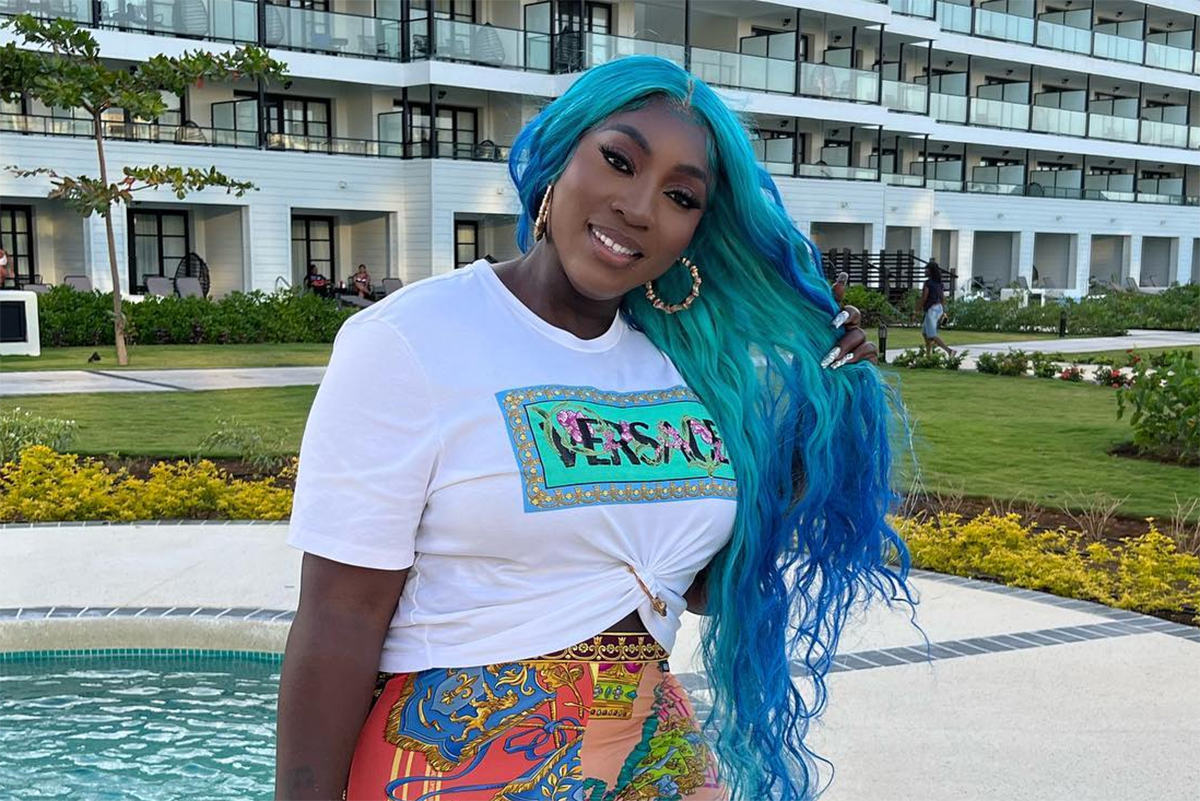Spice’s Recent Billboard Entry ‘A Big Deal’

Queen Of Dancehall Spice‘s ability to steer her own ship after severing ties with VP Records is being hailed following the first week showing of her sophomore album Emancipated . The album, which was released independently on August 26, managed to match the opening week performance of her debut album 10, which was backed by VP one year ago.
The project became her fourth entry on the Billboard Reggae Albums chart, opening at No. 7 with the equivalent of 1,500 total units sold in the US during its first week of release. 10 had spent one week on the chart at No. 6 last year, after selling 1,447 units in its first week.
Some critics noted that the Queen, who has 4 million followers on Instagram, should have done much better with both of her albums. But, many supporters have been praising the 40-year-old for stepping out on her own for her second album.
“This is a big deal, especially as she’s independent,” one Spice supporter commented. Another noted: “For an independent artist to do this I’m very proud of Spice, no features no major label, and no industry backing.”
While there are several benefits to clinging to a major record label, music insider and producer Sean “Contractor” Edwards says upon closer analysis, being an independent artist has its fair share of benefits.
“Well, the advantages of having an independent label now is that you have a hundred percent creative control. Nobody can tell you what to sing—what not to sing. You have a hundred percent ownership. You own it, you own the masters and you have a hundred percent of the profits,” he told DancehallMag.
Spice’s Emancipated was released through Stealth Music Group and Spice Official Entertainment under license to the independent music distribution service UnitedMasters LLC.
The album is one of only three independent albums on the Reggae chart this week. The other two are Stick Figure’s World On Fire and Set In Stone, at No. 5 and 6 respectively.
In Contractor’s estimation, becoming an independent artist has been made easier with the rise in technology and the desire by many acts to achieve autonomy.
“It is easy to be an independent label. You can sit at home and upload. Everything is digital now… digital streaming platforms, and you can promote it online. So, those are the advantages of being an inde,” he added.
Contractor further added that independent artists are equally able to achieve top accolades. “Look at that guy there, Chance The Rapper—he’s an independent and he won three Grammy Awards,” he said.
The producer, who is the principal of Contractor Music Group, however acknowledged that in some cases, solo artists have to work twice as hard because of the support deficiency.

“Now, when you’re an independent artist, you don’t have some of the major resources to do marketing and promotion. You don’t have as many connections as them either ‘cause they have more money, they have more connections,” Contractor said.
“I’m an independent label, but we make it work. We have creative control. We have a hundred percent of the profits and we own our work.”
From a record label point of view, Contractor revealed that major labels have little to no patience with artists, whose material does not move big numbers immediately.
“With Reggae, what happens is that the artists that get signed to these major labels, they don’t understand Reggae music. They don’t understand Dancehall music,” he said.
“So they really don’t know how to market it. You find the artist yeah they get signed, they get the money, they get some mainstream exposure but if the record label doesn’t see sales and streams in the millions immediately, they consider it a failure and then they stop putting energy into it. Whereas we will take one whole year to promote something because we understand that some songs take time to develop into the market.”
In an interview last month, producer Stephen ‘Di Genius’ McGregor noted that the measure ‘success’ in Jamaican music has changed, especially so for ‘Trap Dancehall’ artists.
“The youth dem probably more successful now than a lot of the success in the past,” he began.
“Most of the songs with crossover success have always been songs with muscle [a record label] behind them. Dem youth yah now a voice a song inna dem bathroom, it buss pon YouTube, then dem fly out and do show, and thousands of people are seeing it. Dem own dem masters, dem come back, and dem have a bag a money.”
Di Genius continued: “That, to me, is true success. Moreso than a label sign you to this bad deal where you life mash up forever, but all you can say is yeah but mi did deh pon Billboard (charts). The measures of success is different.”
